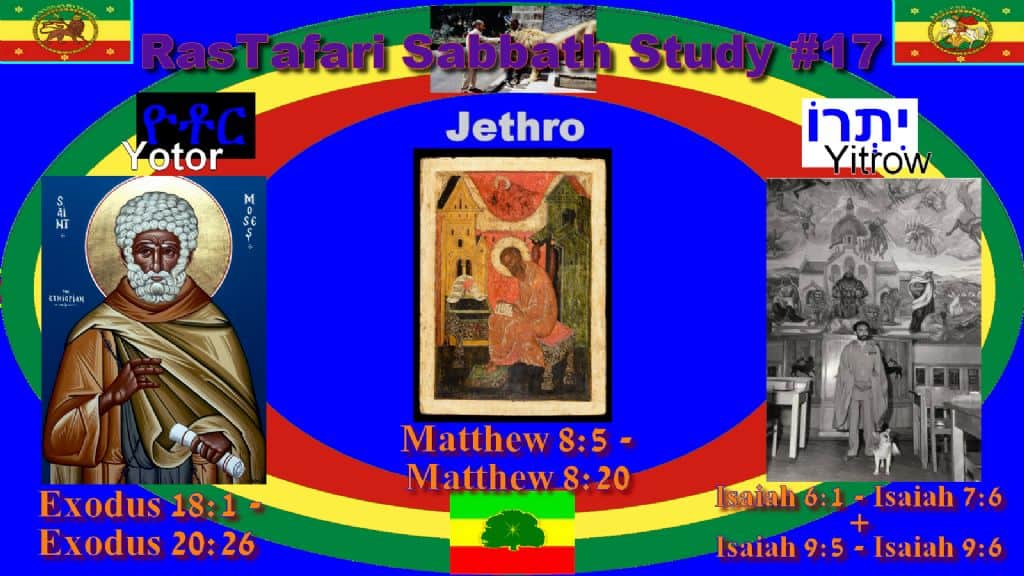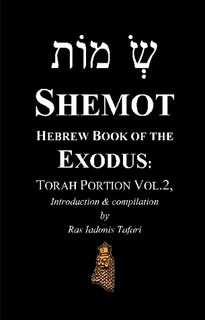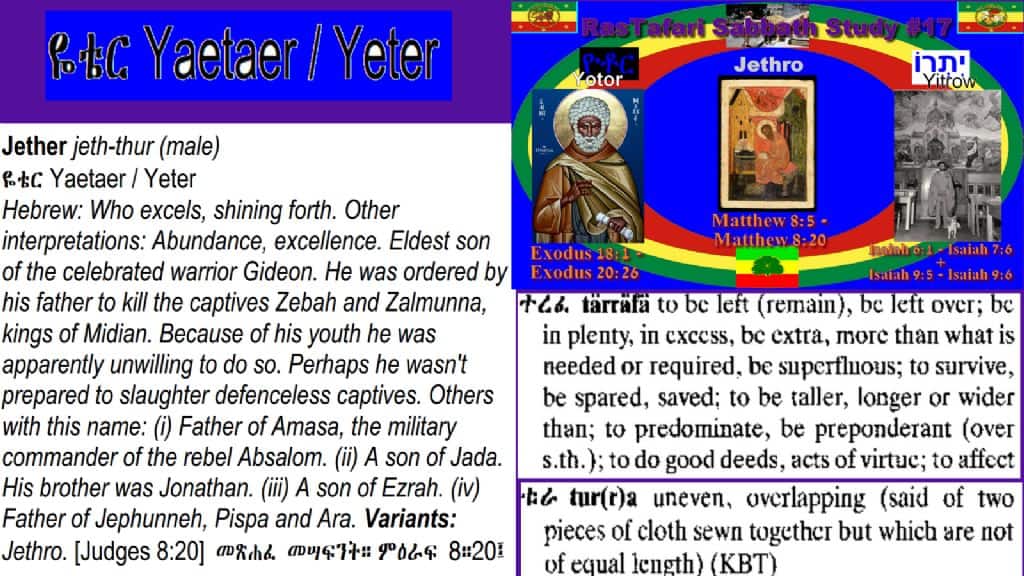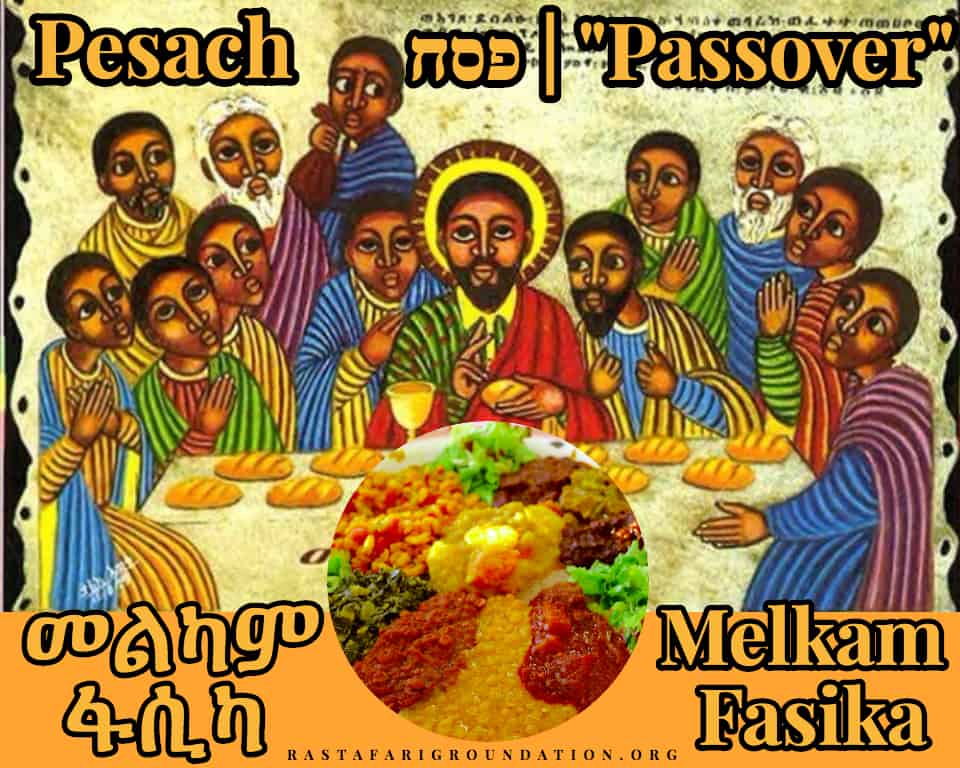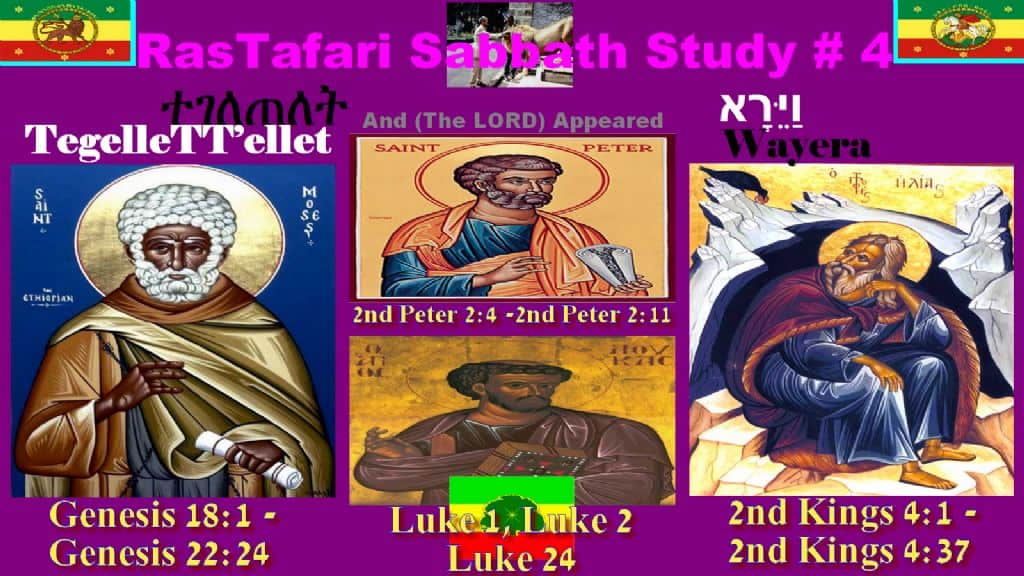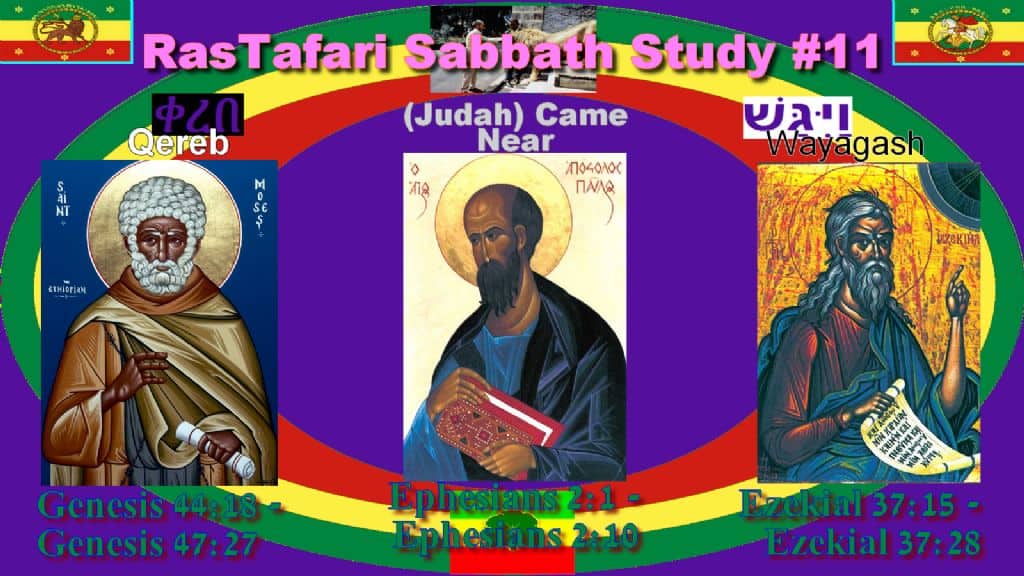This Week's Portion #17
Yitro | יתרו | "Jethro" ዮቶር | Yotor
*For a PDF version of All the Torah Portions Schedule, click here to download!
2. Prophets Reading
Isaiah 6:1-7:6; 9:5-6
3. New Testament Reading
Matthew 8:5-20
Portion Outline - TORAH
- Exodus 18:1 | Jethro's Advice
- Exodus 19:1 | The Israelites Reach Mount Sinai
- Exodus 19:9 | The People Consecrated
- Exodus 20:1 | The Ten Commandments
- Exodus 20:22 | The Law concerning the Altar
Portion Outline - PROPHETS
- Isaiah 6:1 | A Vision of God in the Temple
- Isaiah 9:1 | The Righteous Reign of the Coming King
Portion Study Book Download & Summary
SHEMOT Hebrew Book of Exodus - Torah Portion Vol.2 (FREE PDF)
The seventeenth reading from the Torah is named Yitro (יתרו), which is the literal Hebrew behind the name Jethro. The title comes from the first words of the first verse of the reading, which says, “Now Jethro, the priest of Midian, Moses’ father-in-law, heard of all that God had done for Moses and for Israel His people” (Exodus 18:1). The portion tells the story of Jethro’s visit to the camp of Israel, then relates the great theophany at Mount Sinai, where God gives Israel the Ten Commandments and invites the people to enter a special covenant relationship with Him.
Portion Commentary
Remember the Sabbath
Thought for the Week:
If the covenant ceremony at Mount Sinai can be compared to a wedding, then the Sabbath can be compared to a wonderful wedding gift. Wrapped up in blessing and holiness, it is a gift that continues to radiate the love of God every week.
Commentary:
Remember the sabbath day. (Exodus 20:8)
The LORD commands Israel to remember the Sabbath. What does it mean to “remember” the Sabbath? Was there ever a danger of forgetting to keep the Sabbath? In Semitic culture, the word “remember” has clear covenant connotations. To remember means to act in faithfulness to the covenant. Similarly, God remembered Noah in the Ark, and He remembered Sarah when He was ready to open her womb. Therefore, God is telling Israel to show faithfulness to His covenant by keeping the Sabbath.
Rashi says that we should remember the Sabbath all week long by preparing for it. For example, he says that if a person comes across a nice article of food or drink during the week, he should set it aside for the Sabbath. This reminds me of a story from the days of the Master.
When the Master was not but a baby, there lived a sage by the name of Shammai. Whenever Shammai was in the market place, he always kept a lookout for exceptionally fine items that he might be able to purchase for the Sabbath. If he found a really good goat or chicken or vintage of wine, he would purchase it and say, “This is for the Shabbat.” If later on in the week he found one even nicer, he would purchase that one for the Sabbath and use the previous thing he had bought on a week day instead.
Sometimes I meet Christians who want to keep the Sabbath, but they are distressed because in their current circumstances they cannot. They wonder what they should do. For example, it is not uncommon for a married woman to want to keep the Sabbath when her husband does not. In such situations, I always remind people that God commands us to both remember the Sabbath and to observe the Sabbath. (Deuteronomy 5:12 says “observe” while Exodus 20:8 says “remember.”) If it is impossible to do both, it is better to do at least one of them.
If you find that you are unable to observe the Sabbath, you can at least remember it. At a minimum, this requires being conscious of the Sabbath’s presence. Remember it on Friday night when the sun goes down and the Sabbath begins. Remember it on Saturday morning when the sun rises on the day of rest and the Torah is being read in the synagogue. Remember it on Saturday night as the holy day comes to an end. By doing at least that much, a person can take at least a small share in the Sabbath. The path of Torah is never all or nothing, and something is always better than nothing.
Middot U’Mitzvot (Character and Deeds)
A Kingdom of Priests
The LORD promised to make the children of Israel into a “kingdom of priests” (Exodus 19:6). The job of a priest is to serve as an intermediary between the gods and human beings. As the priests of the ancient world approached the gods in worship, they represented the people by bringing sacrifices and oblations on their behalf. As they interacted with the people, they represented the gods in whose service they were priests. God wants His people to act as intermediaries in a similar way. When we serve God, keeping His commandments and worshipping Him as is befitting, we represent humanity. When we interact with the rest of humanity, we represent God. People who do not know the LORD can look at believers and their behavior and learn about what God is like.
In this sense, all believers are part of the “kingdom of priests.” The Apostle Peter wrote to the Gentile believers and encouraged them to live godly lives because they were now part of the “chosen race, a royal priesthood, a holy nation, a people for God’s own possession” (1 Peter 2:9). He warned them against bodily lusts, and exhorted them to “Keep [their] behavior excellent among the Gentiles,” (1 Peter 2:12) so that they would observe their good deeds and glorify God.
Israel has the privilege of being God’s special people, but they also have the responsibility to “show-and-tell” to the rest of the world who God really is. They are to be a perpetual witness and testimony of the one true God.

